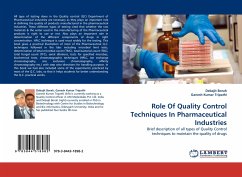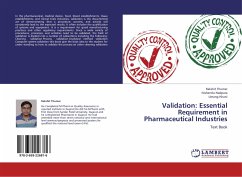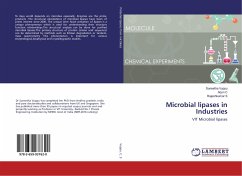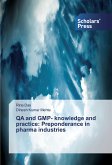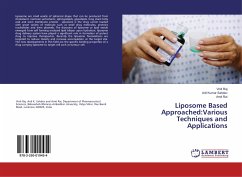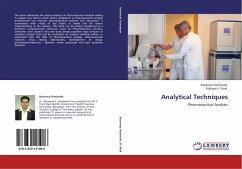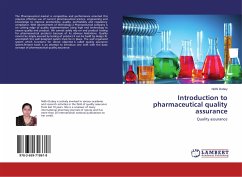All type of testing done in the Quality control (QC) Department of Pharmaceutical industries are necessary as they plays an important role in defining the quality of products manufactured in the pharmaceutical Industries. These different types of testing cited that whether the raw materials & the water used in the manufacturing of the Pharmaceutical products is right to use or not. Also plays an important role in determination of the different components of drugs in right concentration. HPLC technique is used most widely for the testing. This book gives a practical illustration of most of the Pharmaceutical Q.C. techniques followed in the labs including microbial limit tests, determination of total microbial count (TMC), total bacterial count (TBC), total fungal count (TFC), serial dilutions, tests for specified microbes, biochemical tests, chromatographic techniques (HPLC, Ion exchange chromatography, size exclusion chromatography, affinity chromatography etc.) with step wise directions for handling purpose. In this book we had also included some of the experiments practiced by most of the Q.C. labs, so that it helps students for better understanding the Q.C. practical works.
Bitte wählen Sie Ihr Anliegen aus.
Rechnungen
Retourenschein anfordern
Bestellstatus
Storno

